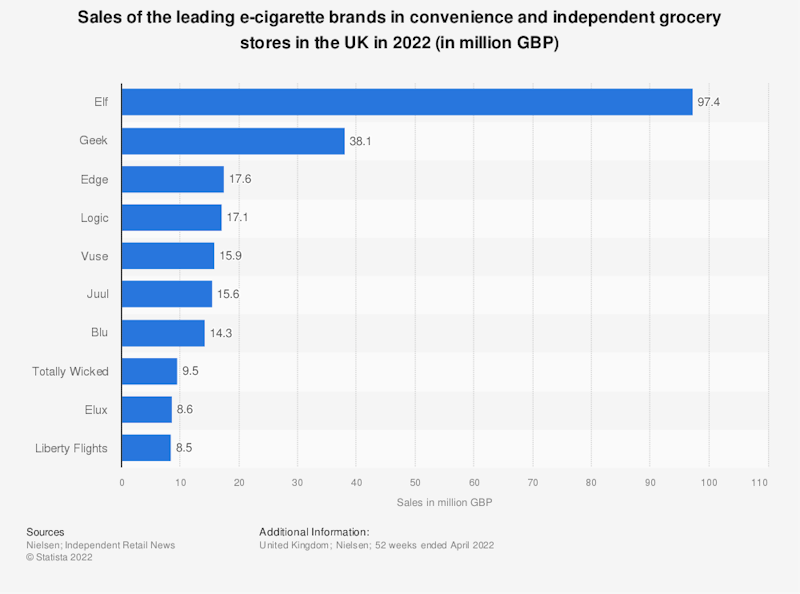In the News
Externalities and Market Failure - Councils urged to keep vapes out of sight of children
11th February 2023
This news story from the health section of BBC News offers a terrific opportunity to A level economists and teachers to open up the economic analysis and policy toolbox to address an important contemporary market failure – ‘Vaping’.

Latest data suggests almost 1 in 9 of 11 to 18-year-olds in England are vaping, up from 1 in 25 just two years ago. 1 in 14 adults are vaping. More than 50% of young vapers use disposable vaping products compared with just 7.8% two years ago.
The evidence on the dangers of vaping is equivocal. Vapes (or e-cigarettes) are safer than cigarettes because they don’t contain harmful tobacco, or produce dangerous tar or carbon monoxide from tobacco smoke. But they are not risk-free; containing nicotine (an addictive substance) and young, regular users have reported nosebleeds, headaches and sore throats. Vast quantities of single use vapes are also being thrown into landfill (itself an increasingly scarce resource).

The Local Government Association (LGA), the medical profession and the Health Charity (ASH) are united in warning about the dangers of vaping. A whole raft of policy measures is suggested to deal with this market failure and the negative consumption externalities of vaping
- Tighter rules on packaging and advertising – only sell vapes in plain packaging
- Keep vapes behind the counter (like cigarettes) and out of sight of children
- Vapes should only be sold to people trying to give up smoking
- Introduce an indirect tax on single-use vapes in the forthcoming March Budget
- Tougher fines for businesses who break the law by underage selling (as with cigarettes the minimum aga is 18). Trading standards suggest the incidence of this is about one third of businesses and is also regularly seizing lorry loads of counterfeit and illegal vapes from shops across the country, as well as at Channel ports (pointing to a thriving ‘Black Market’)
In separate moves both the Scottish and Irish governments have both been considering bans on the disposal of vapes to reduce their impact on public health and the environment (including concerns over littering).
Given the nature of this market failure story, it is a terrific opportunity to dust down and practice those negative consumption externality diagrams alongside how the different policy proposal measures may work (full and partial information, impact of specific taxes & the burden between consumer and producer, tougher regulation on sales and advertising and the circumstances under which a ban should be implemented). These can all be evaluated and the dangers of government failure should not be overlooked.
You might also like

Economics Weekly Quiz w/e 6 December 2019
6th December 2019
The theft of national wealth from Angola
23rd January 2020

Economics Weekly Quiz 6 March 2020
6th March 2020

Mauritius becomes Africa's 2nd High Income Country
7th July 2020
Planet on course for “catastrophic” rise in temperatures say scientists
15th January 2021
